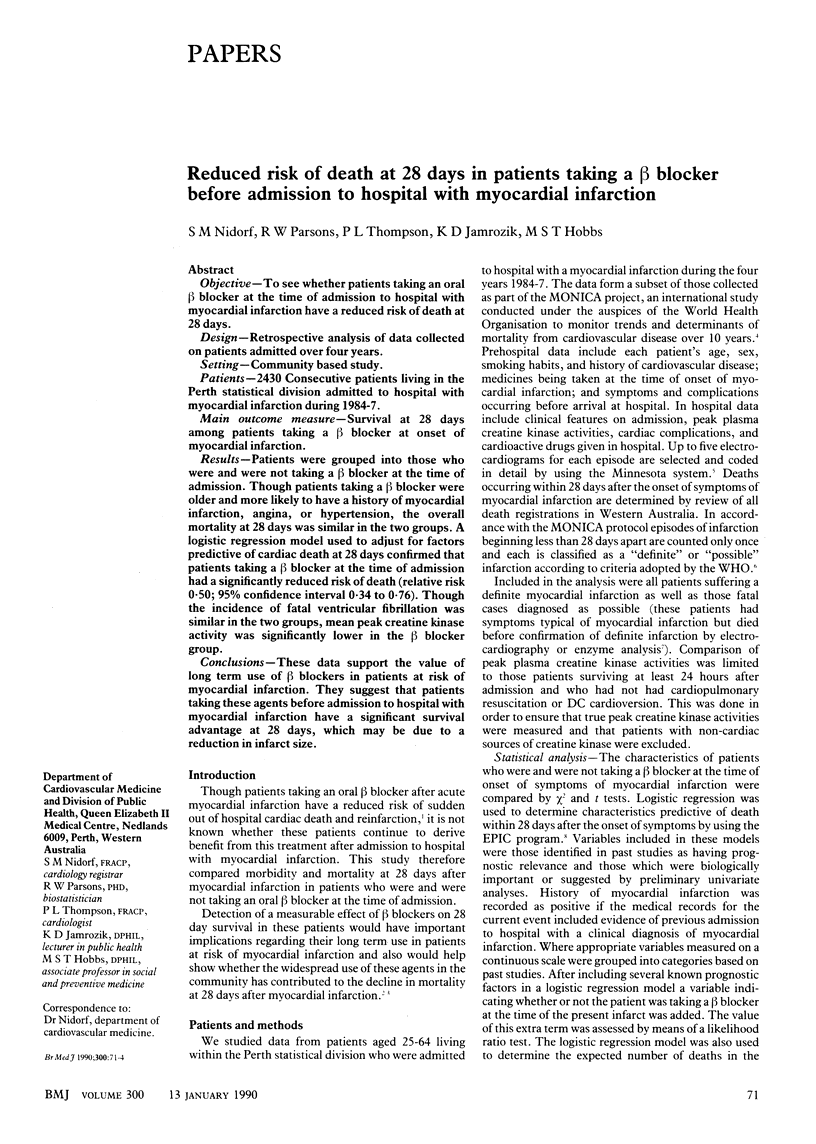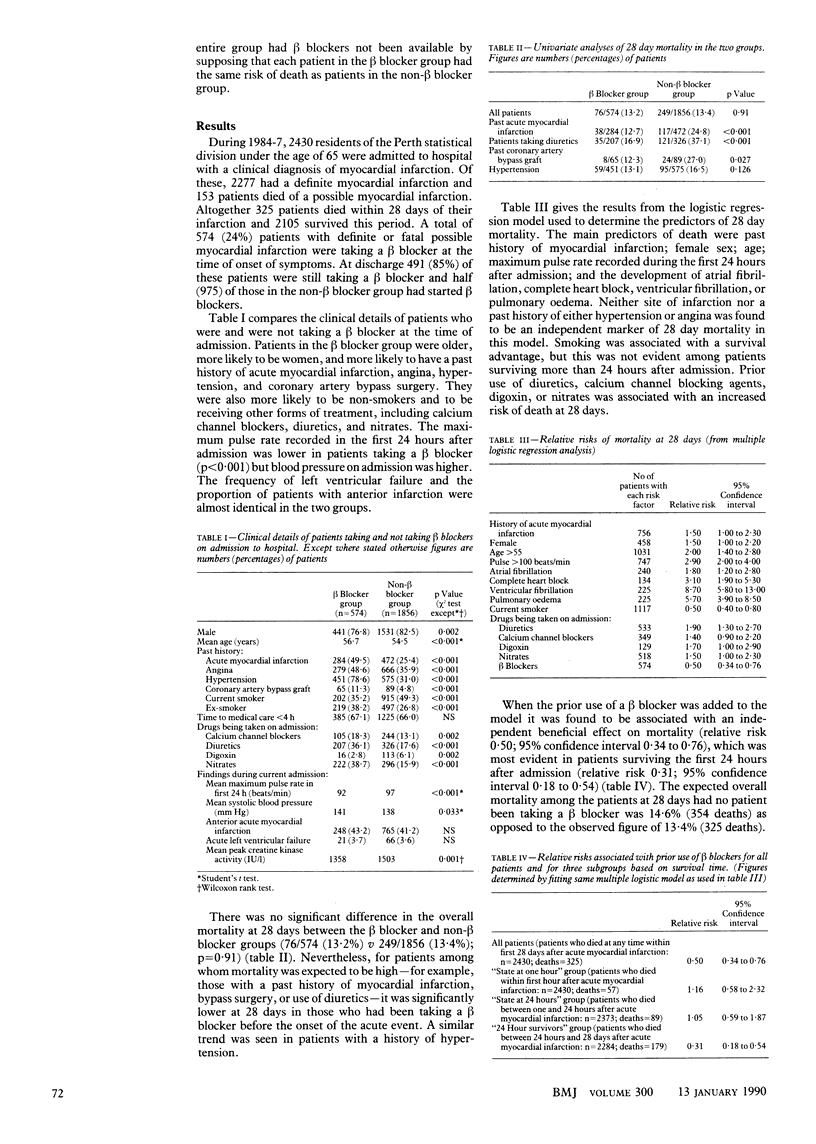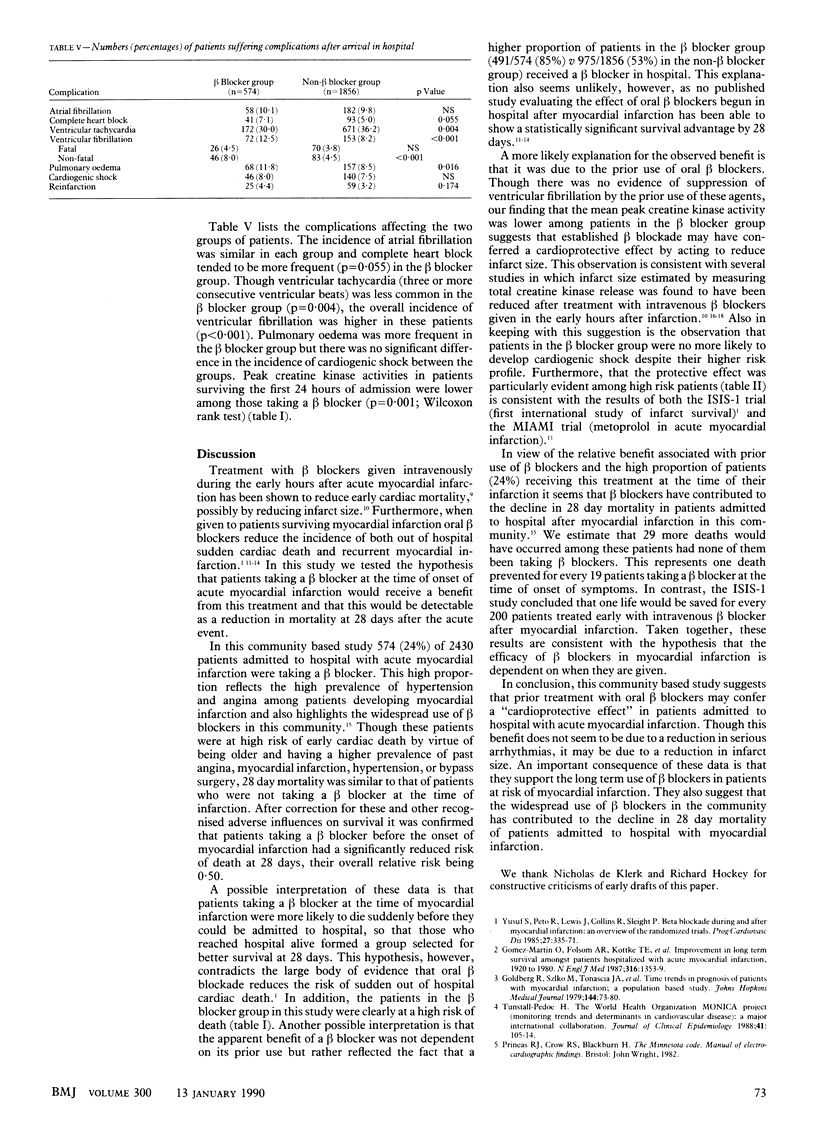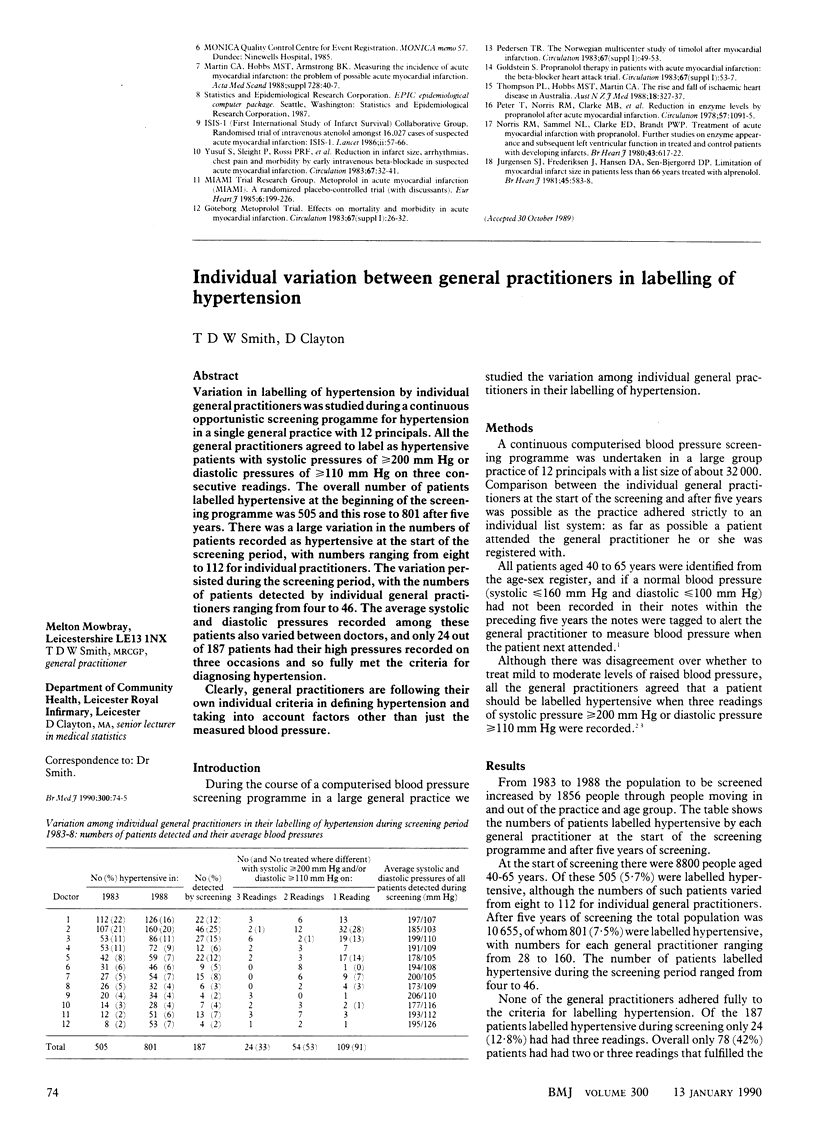Abstract
OBJECTIVE--To see whether patients taking an oral beta blocker at the time of admission to hospital with myocardial infarction have a reduced risk of death at 28 days. DESIGN--Retrospective analysis of data collected on patients admitted over four years. SETTING--Community based study. PATIENTS--2430 Consecutive patients living in the Perth statistical division admitted to hospital with myocardial infarction during 1984-7. MAIN OUTCOME MEASURE--Survival at 28 days among patients taking a beta blocker at onset of myocardial infarction. RESULTS--Patients were grouped into those who were and were not taking a beta blocker at the time of admission. Though patients taking a beta blocker were older and more likely to have a history of myocardial infarction, angina, or hypertension, the overall mortality at 28 days was similar in the two groups. A logistic regression model used to adjust for factors predictive of cardiac death at 28 days confirmed that patients taking a beta blocker at the time of admission had a significantly reduced risk of death (relative risk 0.50; 95% confidence interval 0.34 to 0.76). Though the incidence of fatal ventricular fibrillation was similar in the two groups, mean peak creatine kinase activity was significantly lower in the beta blocker group. CONCLUSIONS--These data support the value of long term use of beta blockers in patients at risk of myocardial infarction. They suggest that patients taking these agents before admission to hospital with myocardial infarction have a significant survival advantage at 28 days, which may be due to a reduction in infarct size.
Full text
PDF



Selected References
These references are in PubMed. This may not be the complete list of references from this article.
- Goldberg R., Szklo M., Tonascia J. A., Kennedy H. L. Time trends in prognosis of patients with myocardial infarction: a population-based study. Johns Hopkins Med J. 1979 Mar;144(3):73–80. [PubMed] [Google Scholar]
- Gomez-Marin O., Folsom A. R., Kottke T. E., Wu S. C., Jacobs D. R., Jr, Gillum R. F., Edlavitch S. A., Blackburn H. Improvement in long-term survival among patients hospitalized with acute myocardial infarction, 1970 to 1980. The Minnesota Heart Survey. N Engl J Med. 1987 May 28;316(22):1353–1359. doi: 10.1056/NEJM198705283162201. [DOI] [PubMed] [Google Scholar]
- Jürgensen J. H., Frederiksen J., Hansen D. A., Pedersen-Bjergaard O. Limitation of myocardial infarct size in patients less than 66 years treated with alprenolol. Br Heart J. 1981 May;45(5):583–588. doi: 10.1136/hrt.45.5.583. [DOI] [PMC free article] [PubMed] [Google Scholar]
- Norris R. M., Sammel N. L., Clarke E. D., Brandt P. W. Treatment of acute myocardial infarction with propranolol. Further studies on enzyme appearance and subsequent left ventricular function in treated and control patients with developing infarcts. Br Heart J. 1980 Jun;43(6):617–622. doi: 10.1136/hrt.43.6.617. [DOI] [PMC free article] [PubMed] [Google Scholar]
- Peter T., Norris R. M., Clarke E. D., Heng M. K., Singh B. N., Williams B., Howell D. R., Ambler P. K. Reduction of enzyme levels by propranolol after acute myocardial infarction. Circulation. 1978 Jun;57(6):1091–1095. doi: 10.1161/01.cir.57.6.1091. [DOI] [PubMed] [Google Scholar]
- Thompson P. L., Hobbs M. S., Martin C. A. The rise and fall of ischemic heart disease in Australia. Aust N Z J Med. 1988 May;18(3):327–337. doi: 10.1111/j.1445-5994.1988.tb02045.x. [DOI] [PubMed] [Google Scholar]
- Yusuf S., Peto R., Lewis J., Collins R., Sleight P. Beta blockade during and after myocardial infarction: an overview of the randomized trials. Prog Cardiovasc Dis. 1985 Mar-Apr;27(5):335–371. doi: 10.1016/s0033-0620(85)80003-7. [DOI] [PubMed] [Google Scholar]



